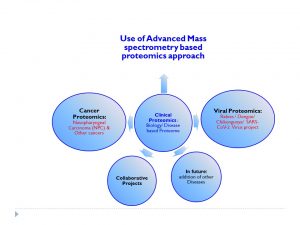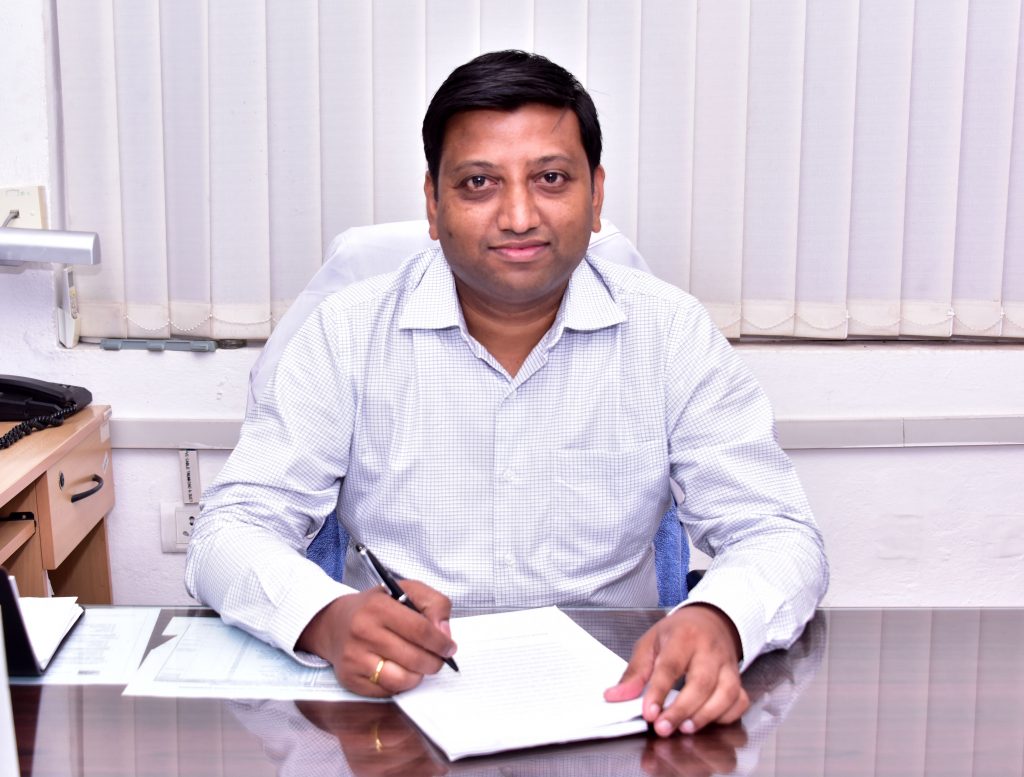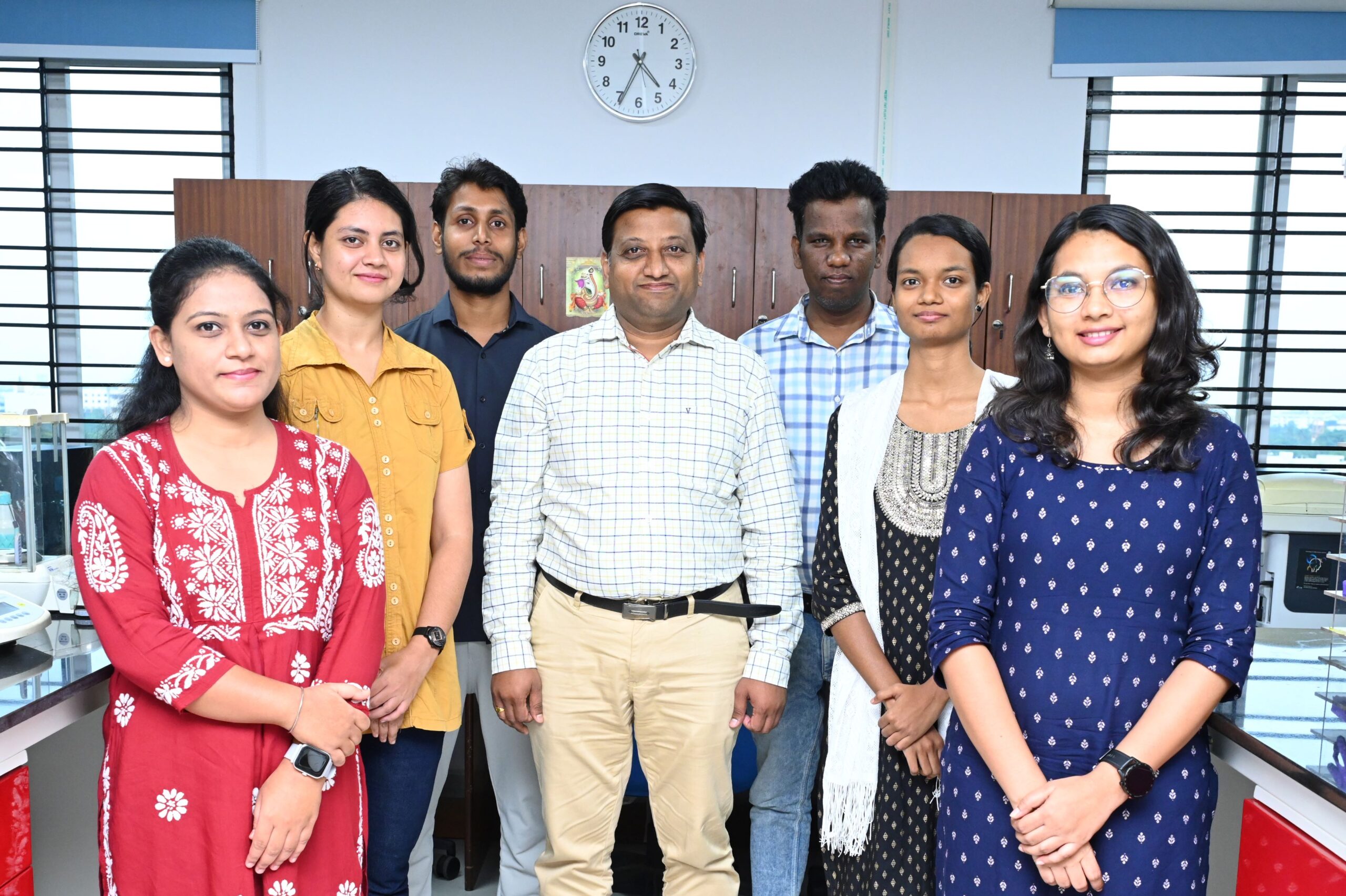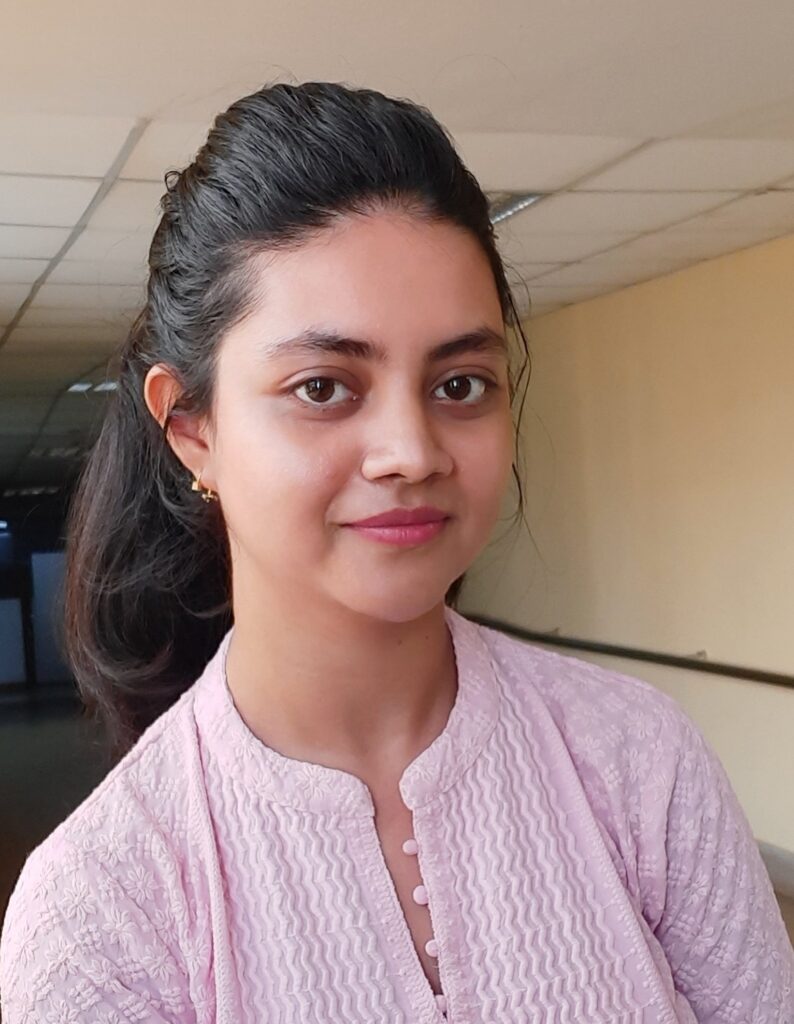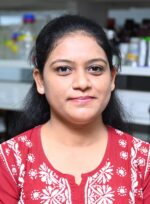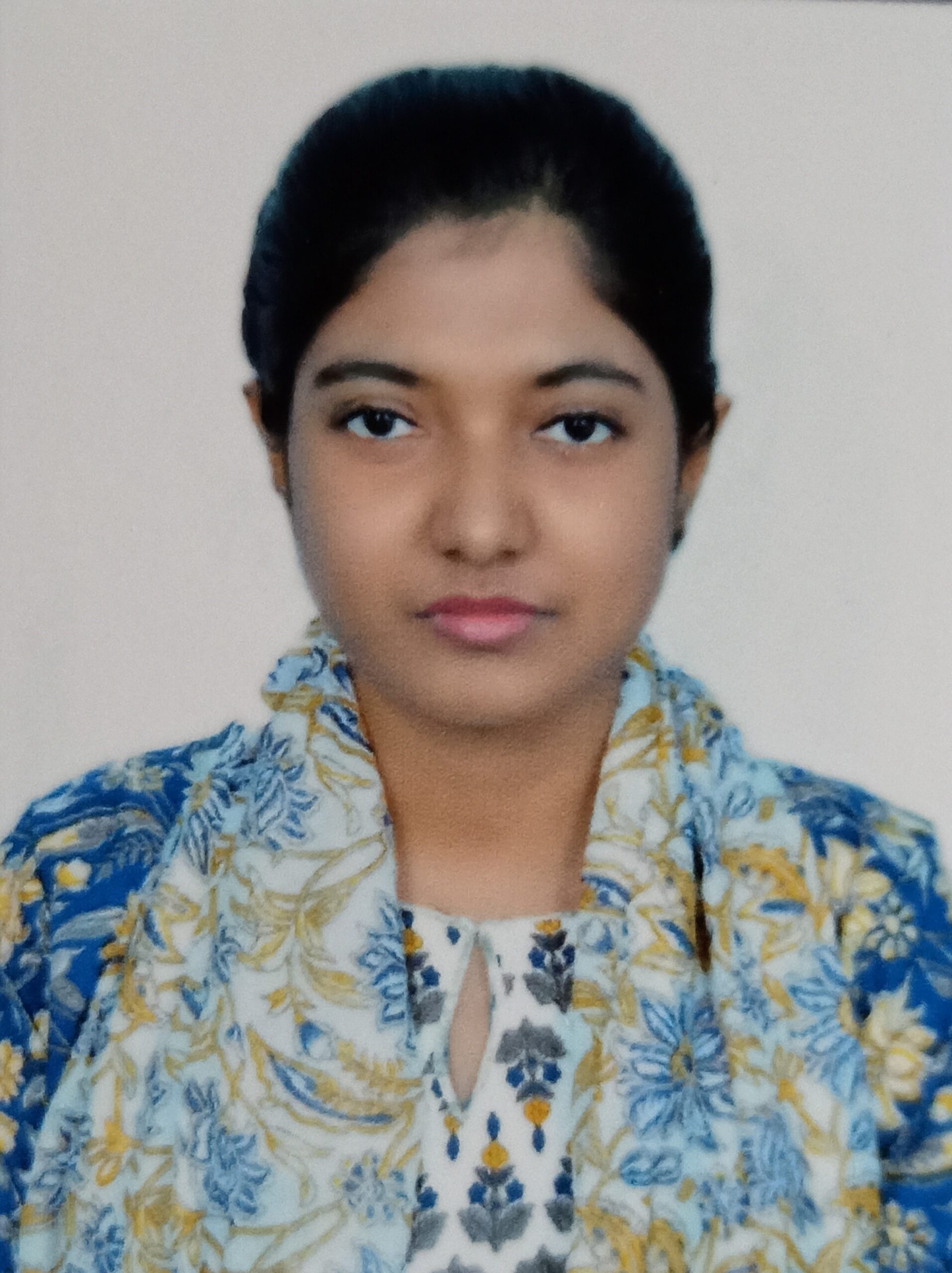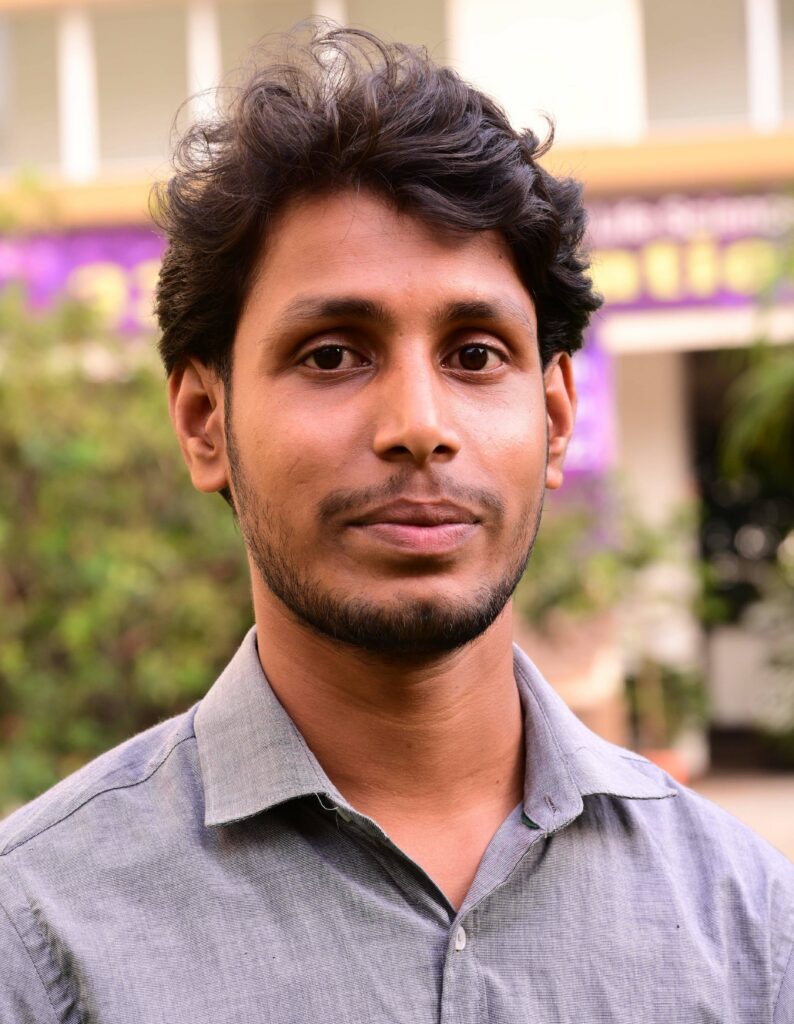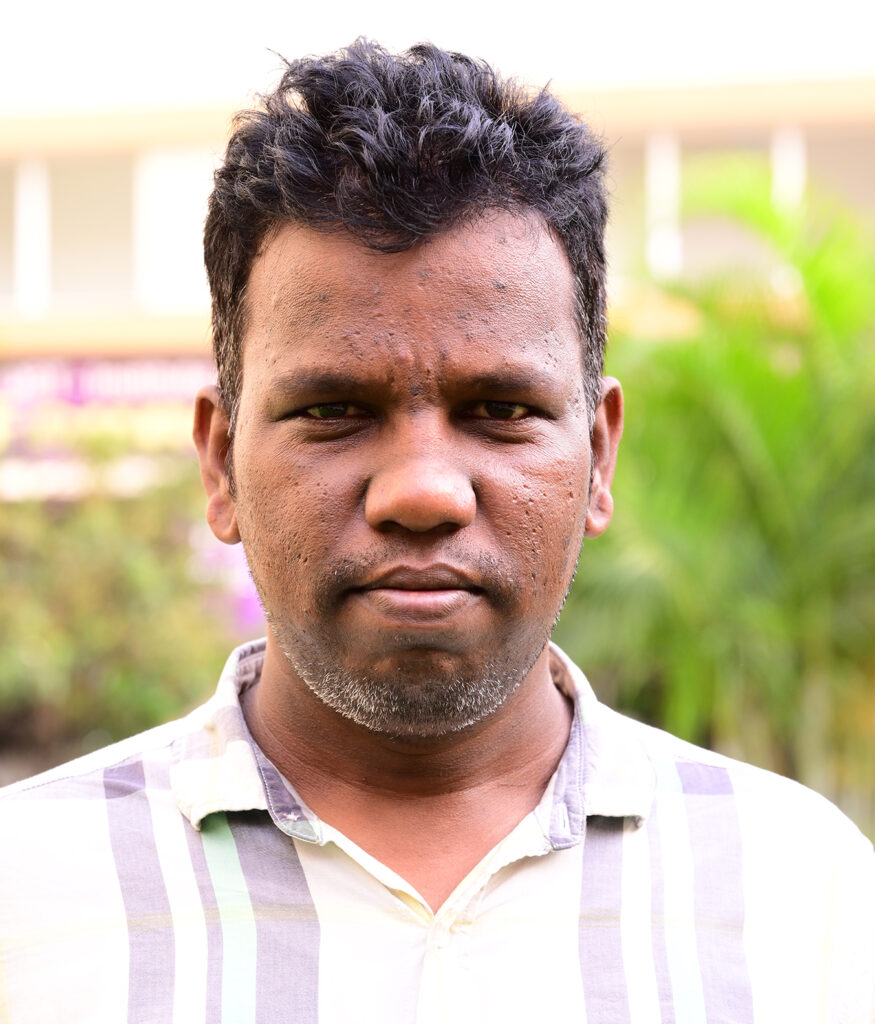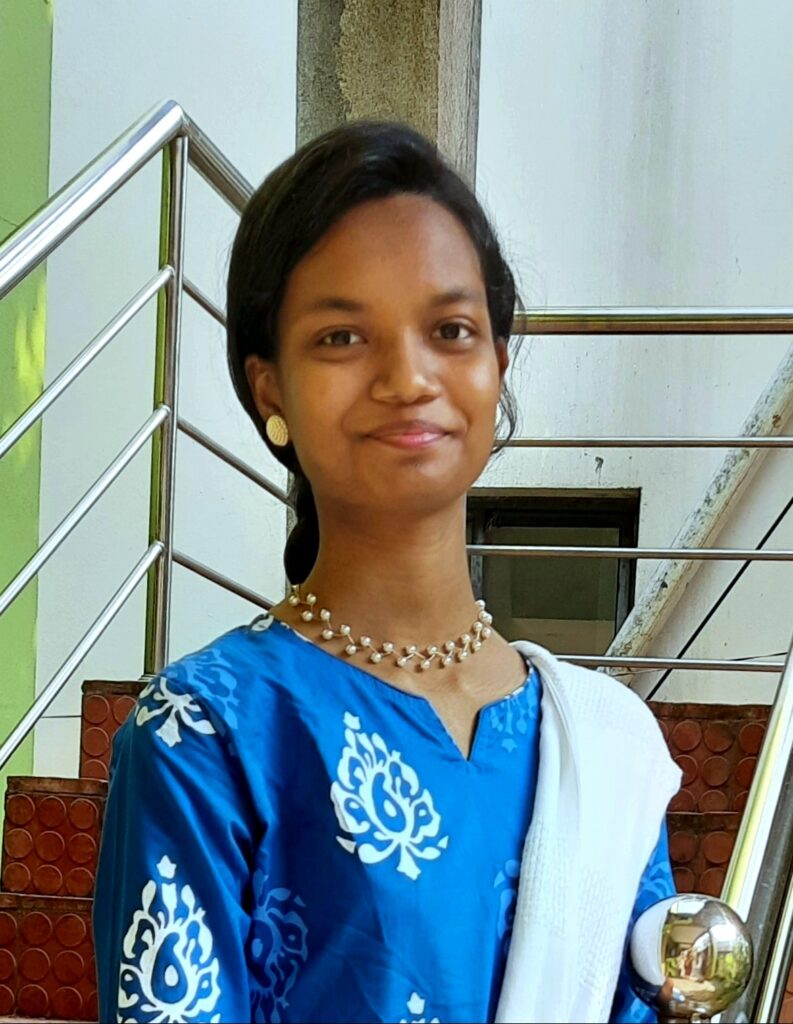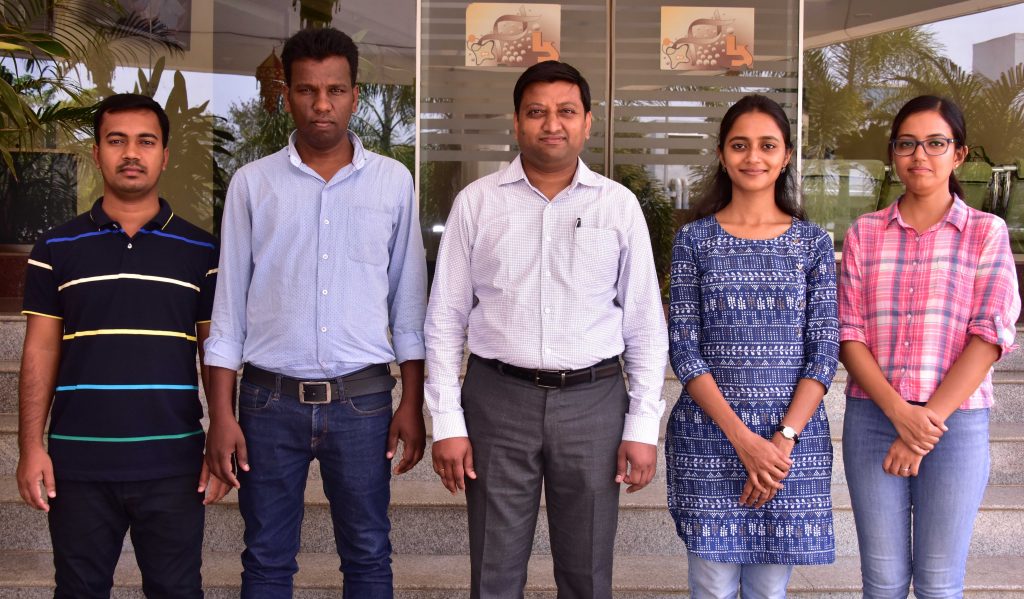Clinical Proteomics : Understanding of cancer and viral diseases through clinical proteomics
Selected Publications
- Behera S, Reddy RR, Taunk K, Rapole S, Pharande RR, Suryawanshi AR. Delineation of altered brain proteins associated with furious rabies virus infection in dogs by quantitative proteomics. J Proteomics. 2022 Feb 20;253:104463. doi: 10.1016/j.jprot.2021.104463. Epub 2021 Dec 23. PMID: 34954397. (Impact factor 4.044)
- Behera S, Suryawanshi AR. Book Chapter entitled, “Proteomics of Animal Viruses”. Springer Nature published Book: Sustainable Agriculture Reviews 59 – Animal Biotechnology for Livestock Production 3. Feb 2023 ISBN 978-3-031-21629-9. DOI : 10.1007/978-3-031-21630-5.
- Sahoo, S., Badhe, M. R., Paul, A., Sahoo, P. K., Suryawanshi, A. R., Panda, D., Pillai, B. R., Baliarsingh, S., Patnaik, B. B., & Mohanty, J. (2023). Isolation and characterization of a lectin-like chitinase from the hepatopancreas of freshwater prawn, Macrobrachium rosenbergii. Biochimie, S0300-9084(23)00252-3. Advance online publication. https://doi.org/10.1016/j.biochi.2023.09.025 (Impact factor 3.9)
- Ghosh, S., Kundu, R., Chandana, M., Das, R., Anand, A., Beura, S., Bobde, R. C., Jain, V., Prabhu, S. R., Behera, P. K., Mohanty, A. K., Chakrapani, M., Satyamoorthy, K., Suryawanshi, A. R., Dixit, A., Padmanaban, G., & Nagaraj, V. A. (2023). Distinct evolution of type I glutamine synthetase in Plasmodium and its species-specific requirement. Nature communications, 14(1), 4216. https://doi.org/10.1038/s41467-023-39670-4 (Impact factor 17.69)
- Sahoo S, Badhe MR, Paul A, Sahoo PK, Suryawanshi AR, Panda D, Pillai BR, Patnaik BB, Mohanty J. Characterization of a Lipopolysaccharide- and Beta-1,3-Glucan Binding Protein (LGBP) from the Hepatopancreas of Freshwater Prawn, Macrobrachium rosenbergii, Possessing Lectin-Like Activity. Probiotics Antimicrob Proteins. 2023 Jan 3. doi: 10.1007/s12602-022-10021-x. Epub ahead of print. PMID: 36593373. (Impact factor 5.265)
- Chandana M, Anand A, Ghosh S, Das R, Beura S, Jena S, Suryawanshi AR, Padmanaban G, Nagaraj VA. Malaria parasite heme biosynthesis promotes and griseofulvin protects against cerebral malaria in mice. Nat Commun. 2022 Jul 12;13(1):4028. doi: 10.1038/s41467-022-31431-z. PMID: 35821013; PMCID: PMC9276668. (Impact factor 17.69)
- Singh B, Avula K, Chatterjee S, Datey A, Ghosh A, De S, Keshry SS, Ghosh S, Suryawanshi AR, Dash R, Senapati S, Beuria TK, Prasad P, Raghav S, Swain R, Parida A, Hussain Syed G, Chattopadhyay S. Isolation and Characterization of Five Severe Acute Respiratory Syndrome Coronavirus 2 Strains of Different Clades and Lineages Circulating in Eastern India. Front Microbiol. 2022 Jun 30;13:856913. doi: 10.3389/fmicb.2022.856913. PMID: 35847066; PMCID: PMC9279865. (Impact factor 6.064)
- Prasad P, Mahapatra S, Mishra R, Murmu KC, Aggarwal S, Sethi M, Mohapatra P, Ghosh A, Yadav R, Dodia H, Ansari SA, De S, Singh D, Suryawanshi A, Dash R, Senapati S, Beuria TK, Chattopadhyay S, Syed GH, Swain R, Raghav SK, Parida A. Long-read 16S-seq reveals nasopharynx microbial dysbiosis and enrichment of Mycobacterium and Mycoplasma in COVID-19 patients: a potential source of co-infection. Mol Omics. 2022 May 4. doi: 10.1039/d2mo00044j. Epub ahead of print. PMID: 35506682. (Impact factor 3.743)
- Ram AK, Mallik M, Reddy RR, Suryawanshi AR, Alone PV. 2022. Altered proteome in translation initiation fidelity defective eIF5G31R mutant causes oxidative stress and DNA damage. Scientific Reports 12:5033. https://doi.org/10.1038/s41598-022-08857-y (Impact factor 4.380)
- Panda S, Nanda A, Sahu N, Ojha DK, Pradhan B, Rai A, Suryawanshi A R, Banavali N, Nayak S. 2022. SufB intein splicing in Mycobacterium tuberculosis is influenced by two remote conserved N-extein histidines. Bioscience Reports 42. (3): BSR20212207. doi: https://doi.org/10.1042/BSR20212207 (Impact factor 3.840)
- Chatterjee S, Datey A, Sengupta S, Ghosh A, Jha A, Walia S, Singh S, Suranjika S, Bhattacharya G, Laha E, Keshry SS, Ray A, Pani SS, Suryawanshi AR, Dash R, Senapati S, Beuria TK, Syed GH, Prasad P, Raghav SK, Devadas S, Swain RK, Chattopadhyay S, Parida A. 2021. Clinical, Virological, Immunological, and Genomic Characterization of Asymptomatic and Symptomatic Cases With SARS-CoV-2 Infection in India. Frontiers in Cellular and Infection Microbiology 11. https://doi.org/10.3389/fcimb.2021.725035 (Impact factor 5.292) (Online: 21 Dec 2021)
- Behera S., Pharande R. R., Reddy R. R., Majee S. B., Mukherjee S., and Suryawanshi A. R.*. (2020). Quantitative proteomics leads to identify dog brain proteins involved in rabies virus infection: Implication in understanding viral pathophysiology. Journal of proteins and proteomics 11, 241–257. https://doi.org/10.1007/s42485-020-00051-w.
- Suresh V, Mohanty V, Avula K, Ghosh A, Singh B, Reddy RK, Parida D, Suryawanshi AR, Raghav SK, Chattopadhyay S, Prasad P, Swain RK, Dash R, Parida A, Syed GH, Senapati S. (2021). Quantitative proteomics of hamster lung tissues infected with SARS-CoV-2 reveal host factors having implication in the disease pathogenesis and severity. FASEB J. Jul;35(7):e21713. doi: 10.1096/fj.202100431R. PMID: 34105201.
- Das P, Badhe MR, Sahoo PK, Reddy RRK, Suryawanshi AR, Mohanty J. Immunoproteomic analysis of fish ectoparasite, Argulus siamensis antigens. Parasite Immunol. (2021) Apr 2:e12837. doi: 10.1111/pim.12837. Epub ahead of print. PMID: 33811350. (Impact factor: 2.05)
- Chatterjee K, De S, Deb Roy S, Sahu SK, Chakraborty A, Ghatak S, Das N, Mal S, Roy Chattopadhyay N, Das P, Reddy RR, Mukherjee S, Das AK, Puii Z, Zomawia E, Singh YI, Tsering S, Riba K, Rajasubramaniam S, Suryawanshi AR, Choudhuri T. (2021) BAX -248 G>A and BCL2 -938 C>A Variant Lowers the Survival in Patients with Nasopharyngeal Carcinoma and Could be Associated with Tissue-Specific Malignancies: A Multi-Method Approach. Asian Pac J Cancer Prev. Apr 1;22(4):1171-1181. doi: 10.31557/APJCP.2021.22.4.1171. PMID: 33906310. (Impact factor: 1.58).
- Raghav S*, Ghosh A, Turuk J, Kumar S, Jha A, Madhulika S, Priyadarshini M, Biswas VK, Shyamli PS, Singh B, Singh N, Singh D, Datey A, Kiran A, Smita S, Sabat J, Bhattacharya D, Kshatri JS, Vasudevan D, Suryawanshi AR, Dash R, Senapati S, Beuria TK, Swain R, Chattopadhyay S, Syed GH, Dixit A, Prasad P, Pati S, Parida A*. (2020). Analysis of Indian SARS-CoV-2 genomes reveal prevalence of D614G mutation in Spike protein eliciting increase in interaction with TMPRSS2 and virus infectivity. Frontiers in Microbiology (accepted on 21st October 2020, In press) (Impact factor: 4.23)
- Roy Chattopadhyay N, Chatterjee K, Tiwari N, Chakrabarti S, Sahu SK, Deb Roy S, Ghosh A, Reddy RR, Das P, Mal S, Karnar BB, Das AK, Tsering S, Riba K, Puii Z, Zomawia E, Singh YI, Suryawanshi AR, Kumar A, Ganguly D, Goswami C, Choudhuri T. TLR9 Polymorphisms Might Contribute to the Ethnicity Bias for EBV-Infected Nasopharyngeal Carcinoma. iScience. 2020 Mar 27;23(3):100937. doi: 10.1016/j.isci.2020.100937. PMID: 32179470 (Impact factor: 4.4)
- Mohanty J, Sahoo S, Badhe MR, Pillai BR, Sahoo PK, Suryawanshi AR, Patnaik BB. Lectin-Like Activity of Hemocyanin in Freshwater Prawn, Macrobrachium rosenbergii. Protein J. 2020 Aug;39(4):358-365. doi: 10.1007/s10930-020-09912-1. PMID: 32661731(Impact factor: 1.3)
- Kakar-Bhanot R, Brahmbhatt K, Kumar V, Suryawanshi AR, Srivastava S, Chaudhari U, Sachdeva G. Plasma membrane proteome of adhesion-competent endometrial epithelial cells and its modulation by Rab11a. Mol Reprod Dev. 2019 Nov 18. doi: 10.1002/mrd.23292. [Epub ahead of print] PubMed PMID: 31737970 (Impact factor: 3.113)
- Roy Chattopadhyay N, Chakrabarti S, Chatterjee K, Deb Roy S, Kumar Sahu S, Reddy RR, Das P, Bijay Kanrar B, Kumar Das A, Tsering S, Puii Z, Zomawia E, Singh YI, Suryawanshi A, Choudhuri T. Histocompatibility locus antigens regions contribute to the ethnicity bias of Epstein-Barr virus-associated nasopharyngeal carcinoma in higher-incidence populations. Scand J Immunol. 2019 Oct;90(4):e12796. doi: 10.1111/sji.12796. PubMed PMID: 31145476 (Impact factor: 2.563).
- Mukherjee S, Sengupta N, Chaudhuri A, Akbar I, Singh N, Chakraborty S, Suryawanshi AR, Bhattacharyya A, Basu A. PLVAP and GKN3 Are Two Critical Host Cell Receptors Which Facilitate Japanese Encephalitis Virus Entry Into Neurons. Sci Rep. 2018 Aug 6;8(1):11784. doi: 10.1038/s41598-018-30054-z.
- Sahu SK, Chakrabarti S, Roy SD, Baishya N, Reddy RR, Suklabaidya S, Kumar A, Mohanty S, Maji S, Suryanwanshi A, Rajasubramaniam S, Asthana M, Panda AK, Singh SP, Ganguly S, Shaw OP, Bichhwalia AK, Sahoo PK, Chattopadhyay NR, Chatterjee K, Kundu CN, Das AK, Kannan R, Zorenpuii, Zomawia E, Sema SA, Singh YI, Ghosh SK, Sharma K, Das BS, Choudhuri T. Association of p53 codon72 Arg>Pro polymorphism with susceptibility to nasopharyngeal carcinoma: evidence from a case-control study and meta-analysis. Oncogenesis. 2016 May 9;5:e225. doi: 10.1038/oncsis.2016.31. PubMed PMID: 27159678 (Impact factor: 3.952).
- Sengupta N, Mukherjee S, Tripathi P, Kumar R, Suryawanshi AR, Basu A. Cerebrospinal Fluid Biomarkers of Japanese Encephalitis [version 2; referees: 3 approved]. F1000Research 2015, 4:334 (doi: 10.12688/f1000research.6801.2).
- Swaroop S, Sengupta N, Suryawanshi AR, Adlakha YK, Basu A. HSP60 plays a regulatory role in IL-1β-induced microglial inflammation via TLR4-p38 MAPK axis. J Neuroinflammation. 2016 Feb 2;13(1):27. doi: 10.1186/s12974-016-0486-x. (Impact factor: 5.408)
- Kumar S, Mamidi P, Kumar A, Basantray I, Bramha U, Dixit A, Maiti PK, Singh S, Suryawanshi AR, Chattopadhyay S, Chattopadhyay S. Development of novel antibodies against non-structural proteins nsP1, nsP3 and nsP4 of chikungunya virus: potential use in basic research. Arch Virol. 2015 Nov;160(11):2749-61. doi: 10.1007/s00705-015-2564-2. (Impact factor: 2.390)
- Pratheek BM, Suryawanshi AR, Chattopadhyay S, Chattopadhyay S. In silico analysis of MHC-I restricted epitopes of Chikungunya virus proteins: Implication in understanding anti-CHIKV CD8(+) T cell response and advancement of epitope based immunotherapy for CHIKV infection. Infect Genet Evol. 2015 Apr;31:118-26. doi: 10.1016/j.meegid.2015.01.017.
- Kumar A, Mamidi P, Das I, Nayak TK, Kumar S, Chhatai J, Chattopadhyay S, Suryawanshi AR, Chattopadhyay S. A novel 2006 Indian outbreak strain of chikungunya virus exhibits different pattern of infection as compared to prototype strain. PLoS One. 2014 Jan 20;9(1):e85714. doi: 10.1371/journal.pone.0085714. eCollection 2014 Jan 20.
- Chattopadhyay S, Kumar A, Mamidi P, Nayak TK, Das I, Chhatai J, Basantray I, Bramha U, Maiti PK, Singh S, Suryawanshi AR, Chattopadhyay S. Development and characterization of monoclonal antibody against non-structural protein-2 of Chikungunya virus and its application. J Virol Methods. 2014 Jan 21;199C: 86-94. doi: 10.1016/j.jviromet.2014.01.008.
- Joshi CS, Suryawanshi AR, Khan SA, Balasinor NH, Khole VV. Liprin α3: a putative estrogen regulated acrosomal protein. Histochem Cell Biol. 2013 Apr;139 (4):535-48.
- Suryawanshi AR, Khan SA, Joshi CS, Khole VV. Epididymosome Mediated Acquisition of MMSDH an Androgen Dependent and Developmentally Regulated Epididymal Sperm Protein. J Androl. 2012 Sep-Oct;33(5):963-74.
- Gajbhiye RK, Sonawani A, Khan SA, Suryawanshi AR, Kadam S, Warty N, Raut V, Khole VV. Identification and validation of novel serum markers for early diagnosis of endometriosis. Hum Reprod. 2012 Feb;27(2):408-17.
- Khan SA, Jadhav SV, Suryawanshi AR, Bhonde GS, Gajbhiye RK, Khole VV (2011). Evaluation of Contraceptive Potential of a Novel Epididymal Sperm Protein SFP2 in a Mouse Model. Am J Reprod Immunol. 2011 Sep;66(3):185-98.
- Suryawanshi AR, Khan SA, Gajbhiye RK, Gurav MY, Khole VV (2010). Differential Proteomics Leads to Identification of Domain Specific Epididymal Sperm Proteins. J Androl. 2011; 32(3):240-59.
- Khan S A*, Suryawanshi A R*, Ranpura S, Jadhav S, Khole V V. (2009). Identification of Novel Immunodominant Epididymal Sperm Proteins using Combinatorial Approach. Reproduction, 2009; 138: 81-93 (*Authors have equally contributed)
- Gajbhiye R K, Suryawanshi A R, Khan S A, Meherji P K, Warty N R, Raut V S, Chehna N A, Khole V V. (2008). Multiple endometrial antigens are targeted in autoimmune endometriosis. Reprod Biomed Online.; 16 (6):817-24.
- Suryawanshi A R., Kanadkhedkar H L., and Umrikar U D. (2004). Chromosome Analysis of Domestic Dogs. Indian Vet J.; 81:1071-1073.
Access full publication list: Dr. Amol R Suryawanshi – Google Scholar
|


